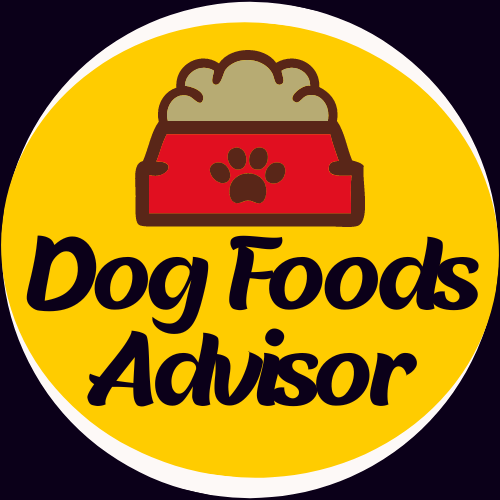Benefits and Drawbacks of feeding your dog breed-specific dog food
Are you considering feeding your furry friend a breed-specific dog food? Well, this trend has been gaining momentum in recent years, with many pet lovers swearing by its benefits. However, whether it’s really the best option for your pooch depends on various factors. In this blog post, we’ll be exploring the pros and cons of breed-specific dog food to help you decide if it’s worth giving a try!
What is breed-specific dog foods?
There are pros and cons to feeding your dog a particular type of food, which is based on its breed. Some benefits of feeding a particular type of food for a particular breed are that it can help with certain health issues, like obesity or joint problems; it may also be tailored to the diet needs of that breed.
However, there are also drawbacks to feeding your dog a diet specific to its breed. One downside is that it may not be suitable for other dogs in the home who might eat the food, and it may also be more expensive than regular dog food. It’s important to consider both the benefits and drawbacks before making any decisions about what type of food to feed your dog.
Benefits of feeding a breed-specific diet
Breed-specific diets have become increasingly popular over the last few years due to their purported benefits, which include improved health and a tailored diet that meet the specific needs of each breed of dog. While there are many benefits to feeding a breed-specific diet to your dog, there are also drawbacks. Here is a look at what these diets offer and what they may not:
There are many purported benefits to feeding a breed-specific diet to your dog. These diets claim to improve overall health and provide a tailored diet that meets the specific needs of each breed of dog. Some of the primary benefits of feeding a breed-specific diet include:
- improved dental health
- better weight control
- increased energy levels
- reduced potential for allergies and other respiratory issues
- enhanced immune system
- less chance of developing certain types of cancer
- enhanced joint function
- enhanced longevity
There are, however, many caveats to feeding a breed-specific diet:
- breeds of dogs may have different nutritional needs.
- raw diets may not be appropriate for some breeds.
- not all breeds of dogs will thrive on a diet based exclusively on their specific needs.
- a homemade diet based on breed-specific requirements may be more affordable and more convenient than purchasing a packaged diet specifically tailored to a breed’s requirements.
Drawbacks of feeding a breed-specific diet
There are many benefits to feeding your dog a diet that is tailored to its specific breed, but there are also several drawbacks to doing so.
One potential downside of feeding your dog a diet specifically designed for its breed is that it may not provide enough nutrients and calories overall. This could lead to weight gain or obesity in your dog, as well as health problems such as congestive heart failure or diabetes. In addition, some breeds of dogs are particularly prone to developing certain health conditions if they aren’t fed a balanced diet that includes multiple types of foods.
Additionally, feeding your dog food specifically designed for a specific breed can be pricier than feeding him an OMRI-approved (Orthopedic Meat Breeds Instrumental in Research) mixed diet. And since these diets typically contain more protein and fat than traditional dog foods, they may be more expensive to buy and feed long term.
Finally, some dog owners feel that breed-specific diets are restrictive and limiting, and may not allow their dog to eat the same foods as other dogs in its neighborhood. This could result in your dog feeling depressed or abnormal, since it may no longer be able to taste and enjoy the foods that are traditionally associated with its breed.
Alternatives to feeding a breed-specific diet
One option for feeding your dog a diet that’s specific to their breed is to feed them a kibble or raw meat diet. This can be very good for dogs that have allergies to certain ingredients in other diets, but it’s not always the best option for healthy dogs. Many dogs also do better on a diet that includes both kibble and raw meat.
Another option is to feed your dog a mixed diet, which includes both kibble and raw meat as well as other types of food. Mixed-diet feeds are typically more expensive than purebred-specific diets, but they can provide more nutrients and antioxidants for your dog. feeding mixed diets can also help prevent obesity in dogs.
If you’re not sure what type of diet is best for your dog, talk to an expert or consult the official guide for feeding your dog based on its breed.
FAQ for Senior Dog Food
What is the healthiest way to feed my dog?
There is no one-size-fits-all answer to this question, as the healthiest way to feed your dog will depend on their specific needs and biochemistry. However, feeding your dog a mix of wet and dry food, including both kibble and raw meat, is generally considered to be a good idea. It’s also important to keep an eye on your dog’s weight, and make sure that they are not obese or overweight. If you’re not sure how to monitor your dog’s weight, speak to a vet or a qualified pet nutritionist.
Can I give my dog human food if he’s not getting enough of his own food?
It’s generally not recommended to give your dog human food if they are not getting enough of their own food – this can lead to nutritional deficiencies and health problems. If you do find that your dog is struggling to eat enough on their own, you can try adding some favourite human foods to their diet, but be mindful of the caloric content.
What is the best way to store my dog’s food?
Storing your dog’s food in a cool, dry place is generally recommended. If you’re unable to do this, you can store the food in a sealed container in the fridge.
Can I trust brands that say they’re made with “all-natural ingredients”?
There is no one-size-fits-all answer to this question, as the all-natural status of a brand’s foods can vary depending on the ingredients. It’s important to read the label of any food that you buy for your dog, and look for terms such as “organic,” “free-range,” or “premium quality.” If you’re unsure about the ingredients in a particular food, you can contact the company in question to ask.
Conclusion
Feeding your dog breed-specific dog food can have a number of benefits, but it also comes with a few drawbacks. If you’re looking for specific nutritional advice to help optimize your pup’s health, sticking to a brand of food specifically tailored to his breed is the way to go. However, feeding your dog this type of food can be expensive, and it may not provide all the nutrients he needs overall. Ultimately, it’s important to do your research and consider what’s best for your canine companion.






